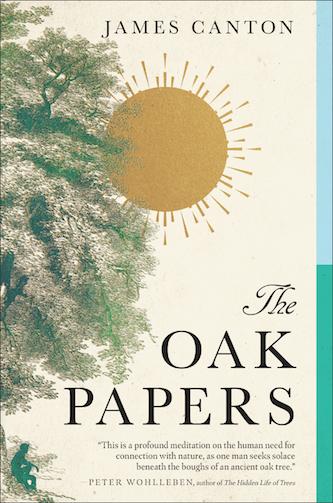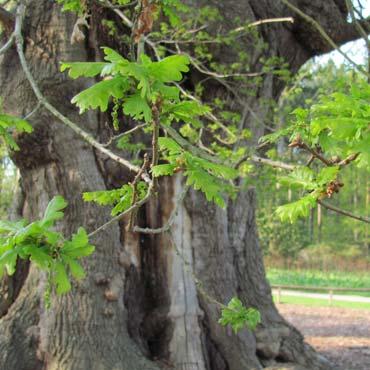‘Echoes of Walden.‘
– Kirkus Review
Joining the ranks of The Hidden Life of Trees and H is for Hawk, an evocative memoir and ode to one of the most majestic living things on earth—the oak tree—probing the mysteries of nature and the healing role it plays in our lives.
Thrown into turmoil by the end of his long-term relationship, Professor James Canton spent two years meditating beneath the welcoming shelter of the massive 800-year-old Honywood Oak tree in North Essex, England. While considering the direction of his own life, he began to contemplate the existence of this colossus tree. Standing in England for centuries, the oak would have been a sapling when the Magna Carta was signed in 1215.
In this beautiful, transportive book, Canton tells the story of this tree in its ecological, spiritual, literary, and historical contexts, using it as a prism to see his own life and human history. The Oak Papers is a reflection on change and transformation, and the role nature has played in sustaining and redeeming us.
Canton examines our long-standing dependency on the oak, and how that has developed and morphed into myth and legend. We no longer need these sturdy trees to build our houses and boats, to fuel our fires, or to grind their acorns into flour in times of famine. What purpose, then, do they serve in our world today? Are these miracles of nature no longer necessary to our lives? What can they offer us?
Taking inspiration from the literary world—Henry David Thoreau, Leo Tolstoy, Katherine Basford’s Green Man, Thomas Hardy, William Shakespeare, and others—Canton ponders the wondrous magic of nature and the threats its faces, from human development to climate change, implores us to act as responsible stewards to conserve what is precious, and reminds us of the lessons we can learn from the world around us, if only we slow down enough to listen.

‘Canton has written a modern rumination that reads like a classic.’
– Booklist
‘An entirely understated but overwhelmingly thoughtful book that seeks to remind us of the deep history that humankind shares with trees. For all interested in learning more about how we interact with nature, past and present.‘
– Library Journal
‘A profound meditation on the human need for connection with nature as one man seeks solace beneath the boughs of an ancient oak tree. The tree and its surrounds come to life in shimmering detail, and Canton’s writing has an exquisite, somewhat dreamlike quality.’
– PETER WOHLLEBEN, author of The Hidden Life of Trees
‘These tender ruminations on oak trees, connections and possibilities will appeal to nature lovers, philosophers, and seekers.‘
– Shelf Awareness
‘James Canton knows so much, writes so well and understands so deeply about the true forest magic and the important place these trees have in it. Knowledge and joy.’
— SARA MAITLAND, author of How to Be Alone
‘With rare delicacy and precision, James Canton has captured the magnificence and mystique of the oak tree. The Oak Papers is a book of deep knowledge, perception, and love.’
— PHILIP MARSDEN, author of The Summer Isles
‘This is a moving, poetic and life-affirming exploration of the idea that a person can form a rich and rewarding bond with an individual tree. The Oak Papers possesses great sensitivity, real wisdom and a deep mystical power.’
— PATRICK BARKHAM, author of Badgerlands
“A lyrical journey into our deep relationship with trees. Canton shows us how paying attention to our gnarled green elders can reveal rich layers of culture, psychology, and ecology. He is a wise and inspiring guide.”
—DAVID GEORGE HASKELL, Pulitzer finalist, author of The Forest Unseen and The Songs of Trees

James Canton visited the eight-hundred-year-old Honywood Oak during the breakdown of a long-term relationship, finding a sense of peace and calm beneath its branches. He kept diary entries of the experience as he began to observe and understand the oak’s delicate ecosystem.
The Oak Papers looks at our relationship with the natural world through cultural and literary reckonings with trees, myth, folklore and history. Canton also talks to woodsmen and women, arboriculturalists, psychologists and artists to understand our age-old connection with and dependency on oaks.

